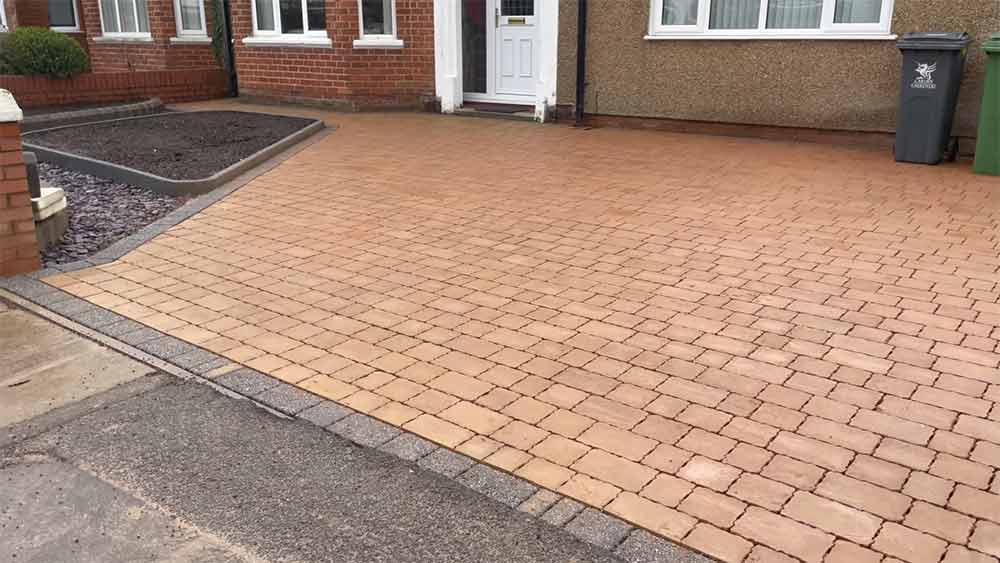Eco-friendly asphalt alternatives for driveways offer a sustainable and environmentally friendly option for homeowners looking to reduce their carbon footprint. Let’s explore the benefits, types, installation process, and more in this informative discussion.
Benefits of eco-friendly asphalt alternatives for driveways
Switching to eco-friendly asphalt alternatives for driveways comes with a multitude of benefits, not just for homeowners but for the environment as well.
Environmental Advantages
- Reduce dependence on fossil fuels: Eco-friendly asphalt alternatives utilize recycled materials and bio-based binders, reducing the need for virgin materials derived from fossil fuels.
- Lower greenhouse gas emissions: By incorporating recycled materials and reducing energy consumption during production, these alternatives help lower the carbon footprint associated with driveway construction.
- Promote circular economy: Recycling materials for eco-friendly asphalt alternatives contributes to a circular economy, where resources are reused and waste is minimized.
Contribution to Sustainability
- Longer lifespan: Eco-friendly options tend to have greater durability and longevity compared to traditional asphalt, reducing the frequency of driveway repairs and replacements.
- Less maintenance: With improved resistance to cracking and deterioration, eco-friendly alternatives require less maintenance over time, saving both time and money for homeowners.
- Water runoff management: Some eco-friendly options offer permeable surfaces that allow water to seep through, reducing stormwater runoff and helping to prevent flooding and erosion.
Types of eco-friendly asphalt alternatives
When it comes to eco-friendly alternatives for driveways, there are several options available that can help reduce the environmental impact of traditional asphalt. These alternatives not only provide a sustainable solution but also offer unique characteristics that cater to different needs and preferences.
Permeable Pavers
Permeable pavers are a popular choice for eco-conscious homeowners as they allow water to seep through the surface and into the ground, reducing runoff and preventing water pollution. These pavers are typically made from materials like concrete, clay, or recycled plastics, and come in a variety of shapes and sizes to create unique patterns.
Grass or Gravel Grids
Grass or gravel grids consist of a grid-like structure that is filled with either grass or gravel. These grids provide a stable surface for vehicles to drive on while allowing grass to grow through or gravel to remain in place. This alternative helps to reduce heat absorption and provides natural drainage, making it an eco-friendly option for driveways.
Recycled Asphalt
Recycled asphalt is another eco-friendly alternative that involves reusing old asphalt pavement materials. This process helps to reduce the amount of waste sent to landfills and conserves natural resources. Recycled asphalt is durable and cost-effective, making it a sustainable choice for driveways.
Porous Asphalt
Porous asphalt is designed to allow water to pass through the surface and into the ground below. This alternative helps to reduce stormwater runoff and minimize flooding while providing a smooth and durable driveway surface. Porous asphalt is a long-lasting and environmentally friendly option for homeowners looking to go green.
Grasscrete
Grasscrete is a unique alternative that combines concrete and grass to create a strong and environmentally friendly driveway surface. The concrete grid pattern allows grass to grow through, providing a natural and aesthetically pleasing look. Grasscrete helps to reduce heat island effects and promotes groundwater recharge, making it a sustainable choice for driveways.
Overall, these eco-friendly asphalt alternatives offer a range of benefits and features that cater to different preferences and environmental concerns. While some alternatives may have a higher upfront cost, they are cost-effective in the long run due to their durability, sustainability, and environmental impact. Consider these alternatives when planning your next driveway project to create a greener and more sustainable living space.
Installation process of eco-friendly asphalt alternatives
When it comes to installing eco-friendly asphalt alternatives for driveways, it is essential to follow a step-by-step process to ensure a successful outcome. Additionally, using the right equipment and techniques can make a significant difference in the quality and longevity of the installation.
Preparation of the driveway
- Clear the driveway of any debris, weeds, or existing asphalt.
- Ensure the surface is compacted and leveled properly.
- Apply a layer of geotextile fabric to prevent weed growth and improve stability.
Application of eco-friendly asphalt alternative
- Mix the eco-friendly asphalt alternative according to manufacturer’s instructions.
- Apply the mixture evenly on the driveway surface using specialized equipment like a paving machine or hand tools.
- Compact the mixture using a roller to ensure proper adhesion and smooth finish.
Maintenance tips for prolonging lifespan
- Regularly inspect the driveway for cracks or damage and repair them promptly.
- Sealcoat the driveway every few years to protect it from UV rays and water damage.
- Avoid using harsh chemicals or sharp objects on the surface to prevent premature wear and tear.
Comparison between eco-friendly asphalt alternatives and traditional asphalt
When it comes to comparing eco-friendly asphalt alternatives with traditional asphalt, several key factors come into play.
Environmental Impact
Traditional asphalt production involves the use of petroleum-based products, contributing to greenhouse gas emissions and reliance on fossil fuels. On the other hand, eco-friendly alternatives utilize recycled materials or bio-based binders, reducing the environmental impact and promoting sustainability.
Aesthetic Appeal and Customization
Eco-friendly asphalt alternatives offer a range of aesthetic options, including different colors and textures to enhance the appearance of driveways. Homeowners can choose from various customization options to complement their property’s design and landscaping.
Performance and Maintenance
- Eco-friendly asphalt alternatives often have comparable or even superior performance to traditional asphalt in terms of durability and strength.
- These alternatives may require less maintenance over time, reducing the need for frequent repairs and resealing.
- Additionally, eco-friendly options can withstand temperature fluctuations and weather conditions better than traditional asphalt, leading to a longer lifespan.
Last Recap
In conclusion, eco-friendly asphalt alternatives provide a durable, cost-effective, and aesthetically appealing choice for driveways while also contributing to a greener environment. Consider these options for a more sustainable and eco-conscious approach to driveway construction.
